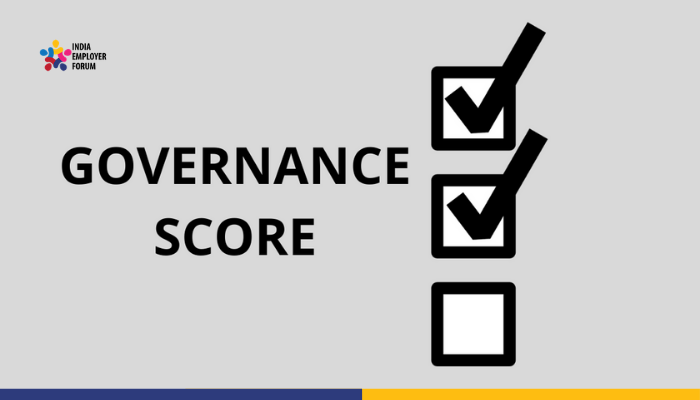Corporate governance is of overarching importance to the day-to-day operations as well as long-term functioning of an entity in the business world. Businesses across the world endeavor to have good corporate governance. They realize the importance of corporate governance and strive to attain uniformity in reaching world-class standards of company governance.
None of these goals have been more important than now, in times of the COVID-19 pandemic, where small businesses and multinational corporations are alike affected. The economic impact of the coronavirus is as wide-ranging as the reach of the virus itself. Corporate governance models that took pertinent action were the first ones to repeal targets for growth and revenue, and take on a people-first approach toward their staff.
Logistics and supply chains, equity and debt markets, liquidity and manpower, manufacturing and retail – the list of business verticals thrown into an unprecedented disruption is a long one. Bleak as this picture may be, a trend that spells hope and retention of control is to be observed in those business entities that have held a tight rein over their corporate governance practices. They have been quick to amend rules, accept the new normal, and look to the attributes of governance to bring order in times of uncertainty.
You might also be interested to read: Corporate Governance In VUCA World
Importance of corporate governance
In India’s corporate space, the going was difficult even ahead of the upsurge of COVID-19. Corporate governance in the banking sector concerns itself with closing the lacuna in liquidity. By extension, this ensures that working capital needs and timely improvements that drive the performance of industries and companies continue to be met. As the spearhead of corporate governance in the banking sector, the RBI exemplifies disclosure and transparency, surveillance, and prompt corrective action among banking institutions. These are aspects of administration that corporate bodies would do well to mimic.
As India Inc. faces the inevitable, an outlook for any company that hopes to imbue the characteristics of good governance is one of acceptance of a global economic slowdown. Businesses that responded to the beginnings of the pandemic crisis with short-term fixes to their processes and stakeholder policies would now do well to formalize more examples of good corporate governance in keeping with government regulation. Some examples of companies that succeeded in doing this are Motilal Oswal Financial Services, Tata Steel, and Flipkart.
Given that uncertainty over public health and individual contribution is the chief struggle in this pandemic, companies should take a top-down approach in reassuring staff of fair policies as well as laying down expectations. Company directors and chief executives are obliged to keep a realistic view of the situation as they develop and share decisions and re-adjusted goals and business plans with their employees. This forward-looking and proactive model of communication and engagement is not only a sign of good corporate governance for the future of organizations but also one that promotes transparency and trust among all stakeholders.
One important takeaway from this COVID crisis is that information and communication systems need the dynamism and flexibility offered by digitization. By now, most companies with a constructive view of good corporate governance would have made digital channels active across teams and functional areas. Businesses that realize the importance of good corporate governance, regardless of their size, have teams and policies in place to monitor and handle working capital constraints and political disruptions.
You might also be interested to read: Policies For Maximizing Governance
The current government regulation has a disaster management team on standby to handle civilian disasters. Side by side, there is a relaxation in Labor Laws. It shows a uniform set of reforms to limit working hours, continue provision for overtime pay, make extra provisions for a female-friendly factory or industrial working environment, and mandatory rest periods. Uttar Pradesh, Gujarat, Rajasthan, and Himachal Pradesh have amended specific Labor Laws, in some states for a period of three years. Some of the Laws impacted herein are the Minimum Wages Act 1948, Industrial Employment ACT 1948, Dangerous Machines Act 1983, and Apprentices Act 1961. Specific suspensions, especially in the manufacturing sector seek to benefit Cigar Workers, Contract Labor, and Cinema Theater workers among others. This serves as an archetype for large corporate employers and business houses to follow. This way, KPIs are not hampered in the long run. In times of spiralling crises, exemplary corporate governance is also that which does not shy away from soliciting external assistance.
For many public and private companies, this could also mean being prepared for integration and diversification. It is more of a mindset backed by contingency planning rather than reacting in an aimless manner.
References:
- Sharad Abhyankar and Saranya Mishra, India: Corporate Governance In The Times Of COVID-19, Mondaq, 18th April, 2020
- William Kucera, Jodi Simala and Co, COVID-19 and Corporate Governance: Key Issues for Public Company Directors, Harvard Law School Forum, 29th April, 2020
- Hetal Dala, Policy | Will 2020 mark a positive shift in India’s corporate governance?, Moneycontrol.com, May 11th, 2020
- Ashima Obhan and Bambi Bhalla, India: Suspension Of Labour Laws Amidst Covid-19, Mondaq, May 18th, 2020
Related Topics:






